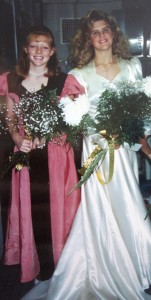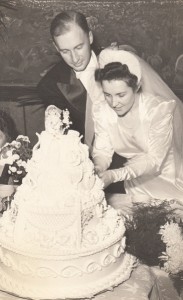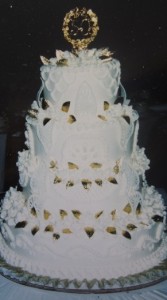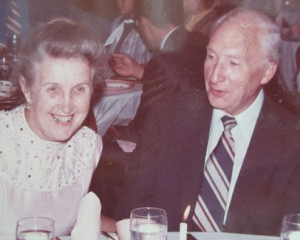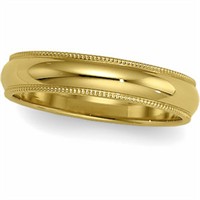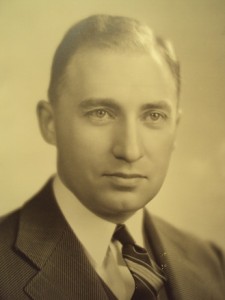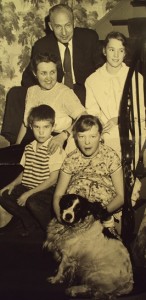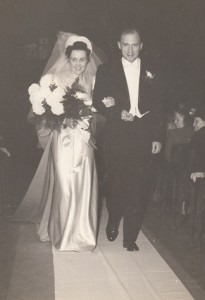 Last weekend we marked the 21st anniversary of my father’s death in 1991. Dad was a late bloomer. He dated only one woman and didn’t get started on that project until his 40’s, but that slow start never disadvantaged him. He and Mom made it to their 50th anniversary, and I remember well the party we planned for them.
Last weekend we marked the 21st anniversary of my father’s death in 1991. Dad was a late bloomer. He dated only one woman and didn’t get started on that project until his 40’s, but that slow start never disadvantaged him. He and Mom made it to their 50th anniversary, and I remember well the party we planned for them.
Several members of their original wedding party from 1941 were able to join us, bringing their remembrances with them. Granddaughters modeled Mom’s wedding gown and a bridesmaid’s dress, and a Chicago bakery recreated their wedding cake. The celebration was like an exclamation point at the end of a good marriage, because the very next month God called Dad to heaven.
Whenever something happens with unusual timing like that, it’s probably God’s way of getting our attention. He orchestrates things purposefully and hopes we’ll learn from it. What message might have been buried within the unusual timing of Mom and Dad’s 50th anniversary being followed so quickly by Dad’s death?
One lesson might be the importance of waiting to make big decisions until God gives the green light. When Dad’s 20’s and 30’s were passing him by, he could have panicked, wondering if he’d ever find the right girl. Would he miss out on married love, a home with children, grandchildren?
Marriage is a decision of considerable consequence, and Dad wisely waited until all indicators pointed to the right time and the right woman. But marrying at 42 made it seem unlikely he and Mom would reach their 50th. God, however, said, “Just watch me.” Dad’s late start had been the Lord’s perfect choice after all.
A second thing we can learn from the timing of Dad’s death is that God has control of our calendars. We write and rewrite them, but God makes last- minute rearrange- ments whenever he chooses. So we learn it’s a good idea to remember whose endorsement we should seek before we make our plans.
One last thing we can learn from the Lord’s timing with Dad is that God is good. Scripture tells us God delights in giving gifts to his children, and Dad’s making it all the way to the 50th was one of them. The trick for us now is to remember that the God-is-good character quality is still a part of God, even when his gifts might seem few and far between.
Our Lord doesn’t change. He was a good God before 1991, has been good since then, and will be good throughout eternity. If he does or doesn’t show that to us, it has no effect on whether or not it’s true. God himself put it best when he said, “I am who I am.”
Dad’s been gone a long while, and sometimes we think it’s a shame he’s missed 21 years of family life. But of course he’s having his own special good times in God’s family, where the Lord’s goodness can be visualized every single day.
“No good thing does he withhold from those who walk uprightly.” (Psalm 84:11)


